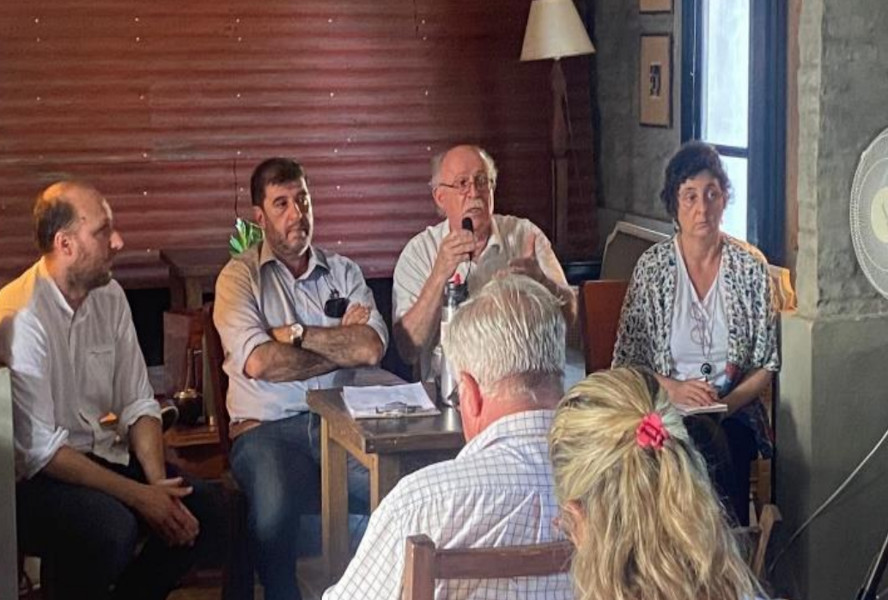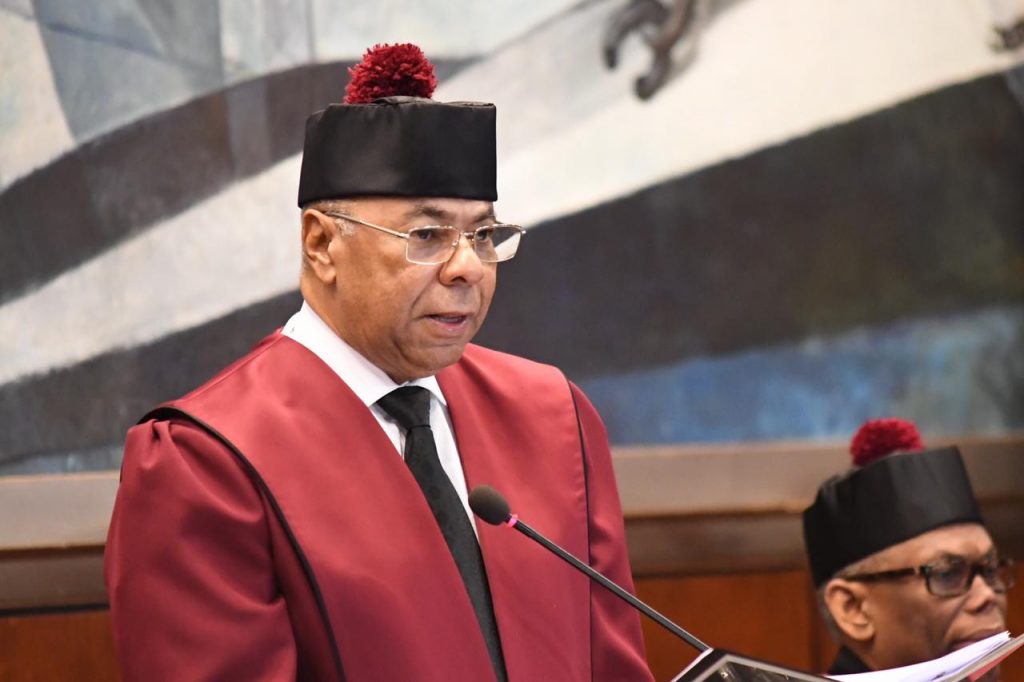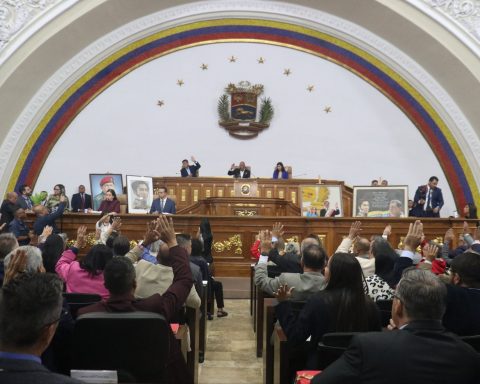Deputy Cecilia Bottino participated in the instance that brought together producers from the area, technicians, professionals, departmental leaders, councilors, national representatives of the Broad Front such as its president, Fernando Pereira; Aníbal Pereyra, member of the Interior Commission of the FA; Senator Sebastian Sabini; deputies Nelson Larzabal, Alfredo Fratti, Sylvia Ibarguren and the president of the Political Table of the FA Río Negro, Oscar Terzaghi.
The complex reality that several dairy cooperatives such as CLALDY (Young), COLEME (Cerro Largo), CALCAR (Colonia) and CONAPROLE (Soriano) are experiencing today was analyzed.
With reference to the measures arranged by the Executive Branch to alleviate the drought situation that affects the country, Bottino pointed out that they “are insufficient.”
He said that although they are necessary, “the situation has been dragging on since October, which was also foreseeable, it is the most serious drought because it covers the entire country and except for rice, all other activities are affected.”
Considering this situation of insufficiency in the measures adopted, the FA summons the Minister of Livestock, Agriculture and Fisheries, Fernando Mattos, “not to challenge him or question him, but to exchange and let him know what are the proposals we have” indicated the legislator.
The proposals will also be delivered to the President of the Republic and “what we resolved in the meeting is that the Deputies and our Councilors meet with the unions, with the producers who are being harmed.”
He stressed that the proposed measures contemplate small and medium-sized producers, family producers, those who do not have support to deal with this situation, “because large producers are always in a better position to have capital that supports them fundamentally on the issue of indebtedness ”.
“We don’t want anyone to leave the countryside…because those small producers who leave don’t come back and go on to swell the belts of the capital cities,” said Bottino.
The measures proposed by the FA
The direct measures proposed are:
1) Postpone rural contribution payments until three months after the emergency is lifted. The economic capacity of each strip or sector of producers must be taken into account.
2) Postpone the payments to the BPS for the quarterly payments in January and May and refinance them in installments starting in 2024 and 2025.
3) Subsidize dairy farmers per liter of milk sent to the plant with the support of the Emergency Agricultural Fund.
4) Special treatment for debts contracted for crops affected by this situation and by previous Agricultural Emergencies.
5) Purchase and distribution of rations to small, medium and family producers.
6) Delivery of seeds to small, medium and family producers.
And as institutional measures:
Urgently convene the National Agricultural Council Law 18120.
Summon all the Departmental Agricultural Councils.
Convoke all the Rural Development Tables.
With the active participation of all the actors in the sector, define other forceful and impactful palliative measures, so that the sector with the greatest contribution to the country’s economy suffers as little as possible and therefore producers and workers in the sector are not lost.
“The institutionality is not working…”
Bottino said that “the Government should already be convening the National Agricultural Council, the Departmental Agricultural Councils and where they are not working, summoning the Rural Development Tables.”
This institutionality is planned for these situations where “all the actors involved have to sit at a table and from there arise the measures that the Government should be adopting,” he said.
There was a Water Plan planned for small producers that cost US$ 25,000,000 (twenty-five million dollars) “which is nothing for the National Budget and for what agricultural production implies in GDP and the Minister did not apply it… we want to be explained why this policy, which was so necessary, was not carried out”.
Disjointed State Policies
When the FA was in government, “it decided to implement the Irrigation Law, rural development policies, investments in recovery and maintenance of cutwaters…and these policies were completely dismantled…for us, there is a lack of public policy on the part of the Ministry of Livestock, there is a lack of investment and support, at the national and departmental level,” he said.
Bottino expressed that the Municipalities have to contribute, mainly in logistics, “we remember that in 2009 there was a great drought and the Departmental Government supported a lot with the distribution of seeds and fodder to small producers… and I think this is a great opportunity for the same thing to happen.”
The indebtedness will have a very important social impact in the medium and long term, “not only in the agricultural sector but will include all of society… those of us who live in the city have to understand that we are all going to suffer… because everything will have repercussions in consumption, in price, costs… there will be shortages and costs will rise…”, said the deputy.
Lift the parliamentary recess
From the FA it is understood that the parliamentary recess must be lifted, “we cannot wait for March 1… on February 2 the Permanent Commission will be convened, possibly on the 1st the Deputies will be convened because the Social Security Reform would enter… we say that with our votes we are willing to lift the parliamentary recess so that if the Executive Power requires Parliament to function and adopt urgent laws on the issue of drought, the FA gives enough votes to lift the recess and to adopt urgent measures required for the agricultural sector.
Bottino specified that if a session of Deputies is called on February 1, “the bench of the Broad Front will present a minute to lift the recess.”
Secretary of the deputy Cecilia Bottino


















